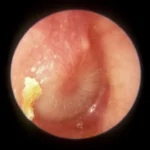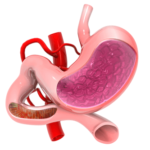A Comprehensive Homeopathic Approach to Natural Healing
Nasal polyps are benign, grape like growths that develop in the nasal passages and sinuses, affecting millions of people worldwide. While conventional medicine often relies on steroids and surgical intervention, homeopathy offers a gentle yet effective alternative that addresses the root cause rather than merely suppressing symptoms.
Understanding Nasal Polyps: Beyond the Surface
Nasal polyps are soft, painless growths that develop due to chronic inflammation of the nasal and sinus lining. They typically appear translucent and can vary in size from small grape-like clusters to larger masses that significantly obstruct breathing. Most commonly, they develop in both nostrils simultaneously, though unilateral polyps require careful evaluation to rule out other conditions.
The formation of nasal polyps isn’t merely a local phenomenon it’s a manifestation of deeper constitutional imbalances that homeopathy uniquely addresses. Unlike conventional approaches that focus on the polyp itself, homeopathic treatment recognizes these growths as external expressions of internal disharmony.
Recognizing the Signs and Symptoms
Patients with nasal polyps typically present with a constellation of symptoms that significantly impact their quality of life:
Primary Symptoms:
- Persistent nasal congestion and obstruction
- Loss of smell (anosmia) or reduced sense of smell (hyposmia)
- Post-nasal drip with thick, discolored discharge
- Facial pressure and pain, particularly around the forehead and cheeks
- Chronic mouth breathing leading to dry mouth and throat irritation
- Snoring and sleep disturbances
Secondary Effects:
- Frequent sinus infections
- Headaches and facial pain
- Reduced sense of taste
- Chronic fatigue due to poor sleep quality
- Social and professional impacts due to nasal voice quality
The Homeopathic Perspective: Treating the Individual, Not Just the Disease
In homeopathy, we understand that nasal polyps rarely occur in isolation. They’re often associated with underlying constitutional tendencies, allergic predispositions, and specific miasmatic influences. This holistic understanding allows us to prescribe remedies that not only address the polyps but also strengthen the overall vital force.
The homeopathic approach considers several key factors:
Constitutional Assessment: Each patient’s unique physical, mental, and emotional makeup influences remedy selection. A patient who develops polyps alongside anxiety and respiratory allergies requires different treatment than someone with polyps associated with digestive issues and melancholic tendencies.
Miasmatic Analysis: Nasal polyps often reflect deeper miasmatic influences, particularly the sycotic miasm, which manifests as abnormal growths and chronic inflammatory conditions. Understanding these deeper layers guides us toward more curative prescriptions.
Totality of Symptoms: Rather than focusing solely on nasal symptoms, we consider the complete symptom picture, including associated conditions like asthma, allergic rhinitis, or recurrent respiratory infections.
Key Homeopathic Remedies for Nasal Polyps
The beauty of homeopathic treatment lies in individualized prescribing. However, certain remedies have shown remarkable efficacy in treating nasal polyps when properly matched to the patient’s symptom picture:
Teucrium Marum: Often considered the primary remedy for nasal polyps, particularly effective when polyps are associated with crawling sensations in the nose, chronic nasal obstruction, and a tendency to pick at the nose. Patients requiring this remedy often have a history of chronic sinusitis and may experience improvement in open air.
Calcarea Carbonica: Invaluable for patients with polyps who exhibit the typical Calcarea constitution tendency toward obesity, excessive perspiration (especially on the head), and chronic respiratory issues. These patients often have fair complexions, are slow in their reactions, and crave eggs and indigestible things.
Lemna Minor: Particularly effective for polyps associated with chronic rhinitis and swollen nasal turbinates. This remedy is often indicated when polyps develop following prolonged exposure to damp conditions or in patients who feel worse in wet weather.
Sanguinaria Canadensis: Especially useful for right-sided nasal polyps accompanied by burning sensations, periodic headaches, and a tendency toward respiratory allergies. These patients often experience relief from lying down and feel worse from noise and light.
Phosphorus: Indicated when polyps are associated with easy bleeding from the nose, chronic respiratory weakness, and a general tendency toward hemorrhages. Phosphorus patients are typically tall, lean, and impressionable, with a strong desire for cold drinks and ice.
Supporting the Healing Process
While homeopathic remedies form the cornerstone of treatment, certain lifestyle modifications can enhance healing:
Environmental Considerations: Minimizing exposure to airborne irritants, maintaining optimal humidity levels, and ensuring good air circulation in living spaces supports the healing process.
Nutritional Support: A diet rich in anti-inflammatory foods while avoiding known allergens can complement homeopathic treatment. Many patients benefit from reducing dairy consumption and increasing intake of fresh fruits and vegetables.
Stress Management: Since emotional stress can exacerbate chronic inflammatory conditions, incorporating stress-reduction techniques like meditation, gentle exercise, or yoga can be beneficial.
When Surgery Isn’t the Only Answer
Many patients come to homeopathy after being told that surgery is their only option. While surgical removal may provide temporary relief, it doesn’t address the underlying tendency to form polyps, leading to frequent recurrence. Studies show that nasal polyps recur in 60-90% of cases within five years of surgical removal.
Homeopathic treatment offers a different paradigm one that works with the body’s natural healing mechanisms to resolve the underlying inflammatory process. This approach not only addresses existing polyps but also reduces the tendency for new ones to form.
The Importance of Professional Homeopathic Care
While acute conditions might respond to self prescribed homeopathic remedies, chronic conditions like nasal polyps require professional assessment and management. The complexity of constitutional prescribing, miasmatic analysis, and case management demands expertise that comes from extensive training and clinical experience.
A qualified homeopathic practitioner can:
- Conduct thorough case analysis to identify the most similar remedy
- Monitor progress and adjust treatment as needed
- Recognize and manage healing reactions appropriately
- Integrate homeopathic treatment with necessary conventional care when required
Read Article – Difficult child – Gentle Support for Growing Minds
Looking Forward: A Natural Path to Lasting Relief
Nasal polyps need not be a lifelong burden requiring repeated surgeries and prolonged steroid use. Homeopathy offers a gentle, effective alternative that addresses the root cause while supporting overall health and vitality.
The journey toward healing requires partnership between practitioner and patient, commitment to the treatment process, and trust in the body’s inherent wisdom to heal itself when given the proper stimulus. For those seeking a natural, lasting solution to nasal polyps, homeopathy provides a time-tested path forward.
Each case of nasal polyps tells a unique story, and successful treatment depends on understanding that story in its entirety. Through careful observation, detailed case analysis, and individualized prescribing, homeopathy offers hope for those who have struggled with conventional treatments or seek a more natural approach to healing.
The choice between temporary symptom suppression and genuine cure is yours to make. Homeopathy stands ready to support your journey toward lasting health and freedom from nasal polyps.




